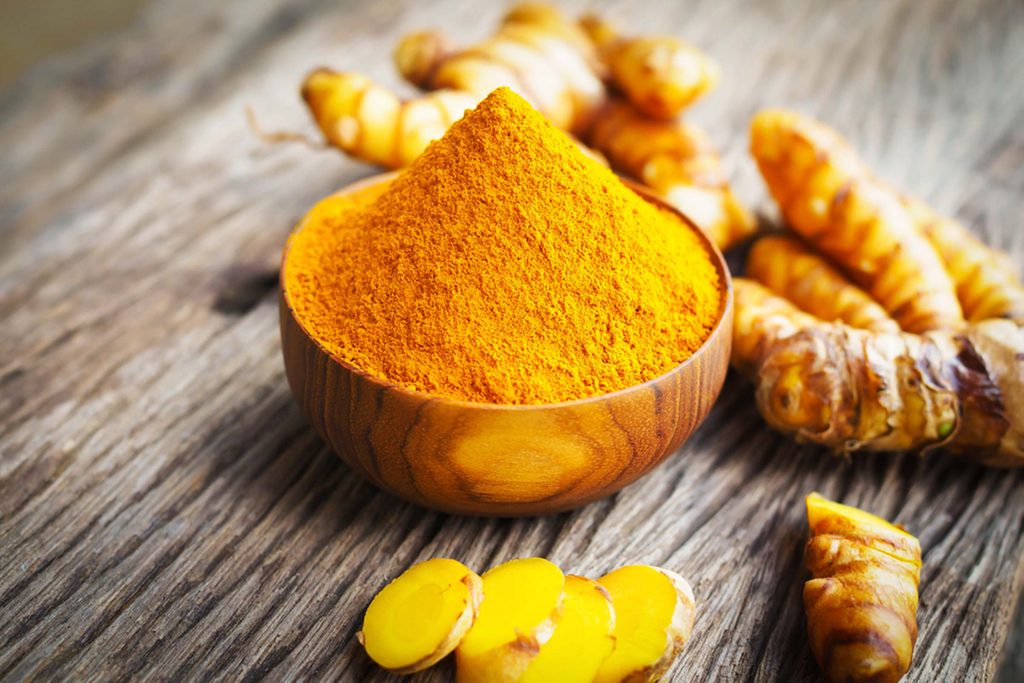Does Turmeric Live Up to All Its Hype? New Research Reveals Surprising Answer
Updated: Jul. 30, 2017
Turmeric has achieved star status as an antioxidant, thanks to its legendary healing properties, but new findings question the claims.
For centuries, turmeric has been touted for its healing properties, specifically as a powerful anti-inflammatory and a very strong antioxidant. As the main spice in curry, it’s widely accepted as one of the most powerful herbs in the world, since it’s thought to both fight and potentially reverse disease. There are currently thousands of peer-reviewed articles on the health benefits of turmeric, with a focus on its active compound curcumin, which makes up about 3 to 5 percent of turmeric.

Because turmeric is considered to aid such a wide a range of health conditions, including cancer and Alzheimer’s disease, a group of researchers wanted to get the root of curcumin’s medicinal chemistry—to see if it was all it’s been cracked up to be. So they teamed up to pinpoint key findings from the thousands of scientific articles on the topic. “Turmeric has become popular recently, with individuals experimenting with using turmeric in new ways, such as in a milk drink,” explains Nicole Osinga, Registered Dietitian, noting the trend of people drinking “golden milk,” made with turmeric. “Sometimes when foods/nutrients gain popularity, their impact on human health tends to get over-exaggerated.”
In their new review paper, published in the Journal of Medicinal Chemistry, Michael A. Walters and Guido F. Pauli examined more than 120 studies and came to some sobering conclusions, saying: “The likely false activity of curcumin in vitro (in labs) and in vivo (in living organisms) has resulted in more than 120 clinical trials of curcuminoids against several diseases. No double-blinded, placebo-controlled clinical trial of curcumin has been successful.” Without those types of studies, the placebo effect can easily explain any positive results. (These are 8 herbs that could better your brain.)
The claims of medicinal benefits come from in vitro testing—or lab tests, which simply don’t hold a lot of weight for determining definitively that any compound is medicinally beneficial. Rather, in vitro results are best considered as a guide to whether the compound can hit the desired target, and if it can penetrate cells. The researchers concluded that curcumin is simply unstable under physiological conditions, and not readily absorbed by the body. The team was also unable to find evidence of a double-blind, placebo-controlled clinical trial on curcumin to support claims of its healing powers.
Though turmeric may not be a cure-all, that doesn’t mean that it’s useless, and the authors don’t suggest that research on turmeric should be stopped. Turmeric extracts and preparations could have health benefits, although probably not for the number of conditions currently touted. The researchers suggest that future studies should take a more holistic approach to account for the spice’s chemically diverse elements.
According to Osinga, the most notable obstacles to using curcumin-based formulations are its poor solubility and fast metabolism. She says such limitations lead to poor absorption from the gastrointestinal tract and limiting therapeutic effectiveness. Though there are a few things you can do to boost how well curcumin is absorbed, she adds. “Have it with a quarter teaspoon of black pepper. If people are given a bunch of turmeric curcumin, within an hour there’s a little bump in the level in their blood stream. We don’t see a large increase because our liver is actively trying to get rid of it. But what if the process is suppressed by taking just a quarter teaspoon’s worth of black pepper? Then you see curcumin levels skyrocket. The same amount of curcumin consumed, but the bioavailability shoots up 2,000 percent. Even just a little pinch of pepper—1/20th of a teaspoon—can significantly boost levels.”
Osinga also suggests combining it with fat. “Turmeric needs to be combined with a fat in order for your body to fully absorb it and experience its amazing health benefits. When eaten with healthy fats, such as coconut, ghee, or olive oil, curcumin can be directly absorbed into the bloodstream through the lymphatic system thereby in part bypassing the liver.”
You can also try heating turmeric, sauteing it in about half a teaspoon of oil in a saucepan and then adding it to your cooking.
“Can turmeric cure cancer? Not likely,” concludes Osinga. “But can it reduce inflammation in the body that leads to chronic diseases such as cancer? Yes.”
